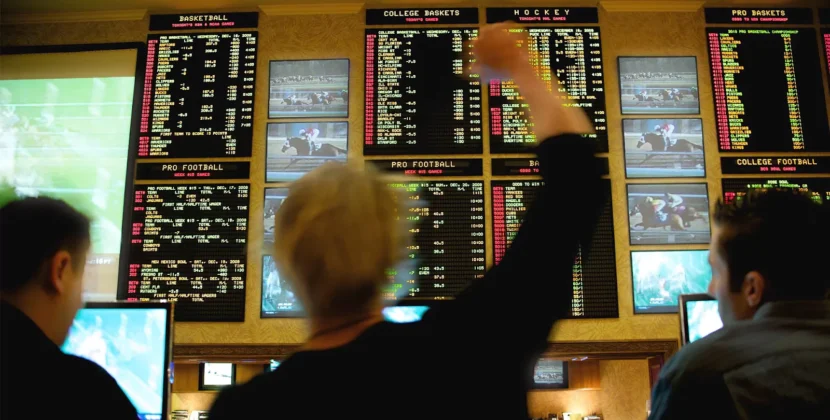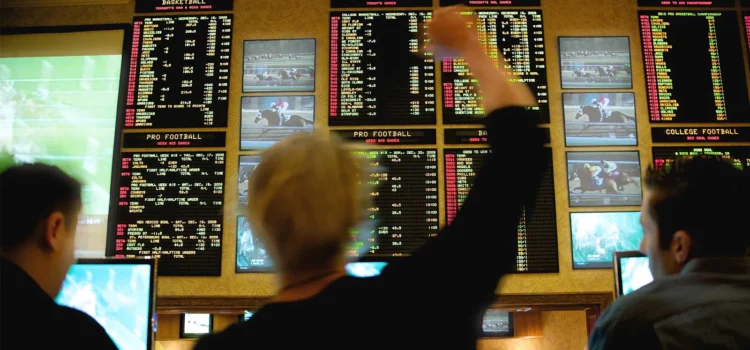
Sports betting is a dynamic and constantly evolving industry, shaped by a multitude of external factors that influence the market and bettors’ behavior. While the thrill of wagering on sports is central to the experience, it is essential to recognize how global events, economic conditions, weather, regulatory changes, player dynamics, and public sentiment can all significantly impact the landscape. Understanding these external forces can help both bettors and operators navigate the uncertainties that inevitably come with this form of entertainment. In this article, we will explore some of the key external factors that can influence sports betting.
Global Sporting Events and Tournaments
Major global sporting events such as the FIFA World Cup, the Olympics, and regional championships are a driving force in the sports betting world. These events not only capture the attention of fans worldwide but also generate a surge in betting activity. The timing, structure, and outcomes of such events can affect how sportsbooks adjust their odds and promotions. For instance, operators often prepare by offering special betting markets, adjusting odds to reflect the teams’ current form, and ensuring that their platforms are ready to handle the influx of traffic that accompanies these high-profile events.
For bettors, understanding the timing of these global tournaments is essential, as it can affect the availability and competitiveness of betting odds. During major tournaments, the betting landscape can become highly competitive, with odds often shifting rapidly due to fluctuations in public sentiment or team performance.
Economic Conditions and Bettor Behavior
The broader economic environment plays a crucial role in shaping bettor behavior. During times of economic instability, such as recessions or financial crises, individuals are often more cautious about discretionary spending. As a result, they may reduce the amount they wager on sports or become more selective in their betting choices. Conversely, in periods of economic growth and stability, people tend to have more disposable income, which can lead to increased participation in sports betting.
For sportsbooks, understanding how economic conditions impact bettor behavior is key to adjusting marketing strategies and promotional offers. Bettors should also be mindful of how economic factors influence their own betting habits, ensuring that they make responsible choices and manage their spending accordingly.
Weather and Venue Conditions
Weather plays a significant role in sports, particularly in outdoor events. Rain, snow, extreme temperatures, or wind can all have an impact on the performance of athletes and teams, introducing an element of unpredictability into the outcomes. Bettors who are aware of the potential effects of weather on a game may gain an edge by factoring it into their predictions. For example, a rainy day could benefit teams known for their strong defensive play, while a hot, dry climate might favor athletes who excel in endurance.
In addition to weather, venue conditions—such as the type of playing surface or the altitude of the location—can also influence a game’s outcome. Bettors who consider these external factors are more likely to make informed decisions, which can lead to more successful betting outcomes.
Regulatory Changes and Legal Developments
The landscape of sports betting is heavily influenced by regulatory changes and legal developments. Different regions have different laws regarding the legality of sports betting, and these regulations are subject to change. The legalization of sports betting in new areas, for example, can open up new markets for sportsbooks and bettors alike. On the other hand, the introduction of more restrictive laws can limit available betting options or make it more difficult for sportsbooks to operate.
For both bettors and operators, staying informed about changes in the legal landscape is crucial. This knowledge ensures that all betting activities are conducted in compliance with local laws, reducing the risk of legal issues and promoting responsible gambling.
Player Injuries and Team Dynamics
Injuries to key players or changes in team dynamics can significantly affect the outcomes of sports events. A sudden injury to a star player or a change in the team’s strategy can influence betting odds and shift public perception. Bettors who follow team news closely and stay updated on injury reports are better equipped to make informed decisions. For example, if a top scorer in football or a star player in basketball is injured, this can lead to a dramatic shift in a team’s chances of winning, thus affecting the odds offered by sportsbooks.
By paying attention to player and team-related developments, bettors can make more accurate predictions, especially when these changes are not yet reflected in the odds.
Public Opinion and Media Influence
Media coverage and public sentiment can also play a pivotal role in shaping the sports betting landscape. News outlets, social media platforms, and celebrity endorsements can all influence the public’s perception of teams or athletes, which in turn affects betting behavior. Positive media coverage can increase the popularity of a team, leading to higher betting activity on that team, while negative coverage can have the opposite effect.
Sportsbooks are aware of the influence of public opinion and often adjust their odds accordingly. Bettors who are aware of the potential impact of media narratives on the betting market may use this knowledge to make more strategic decisions, especially when media attention is overly biased or swayed by fleeting opinions.
Conclusion
Sports betting is an intricate ecosystem shaped by a wide array of external factors, each contributing to the complexity of the industry. From the excitement surrounding global events to the influence of weather, regulatory changes, economic shifts, and public opinion, bettors must navigate a landscape that is constantly in flux. Understanding these external elements not only helps sportsbooks operate more effectively but also empowers bettors to make informed, responsible, and strategic betting decisions. By recognizing the interplay of these forces, both operators and enthusiasts can weather the storm of uncertainty that comes with the ever-evolving world of sports betting.













